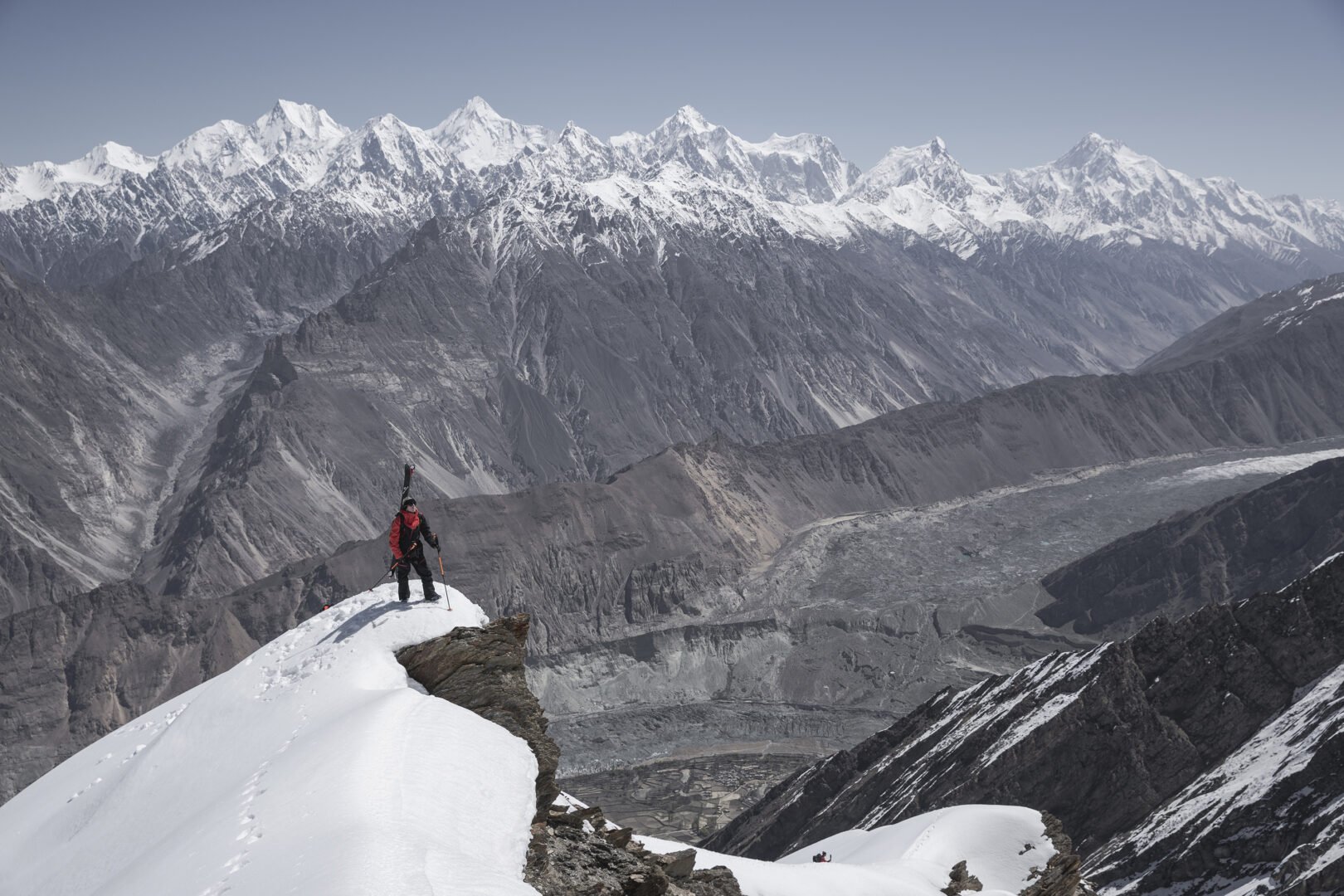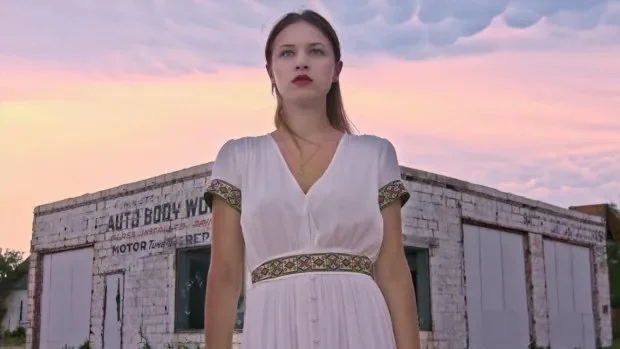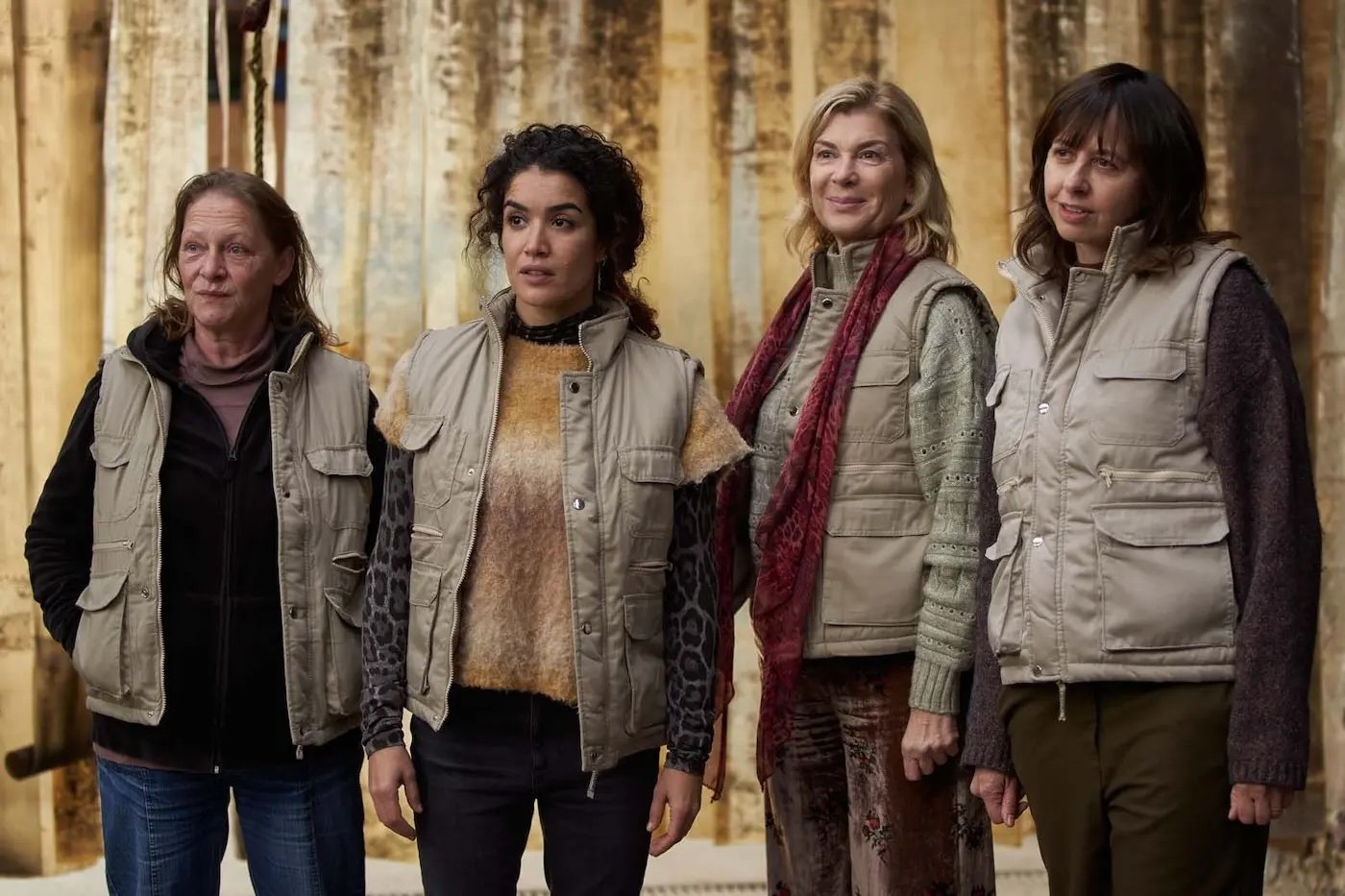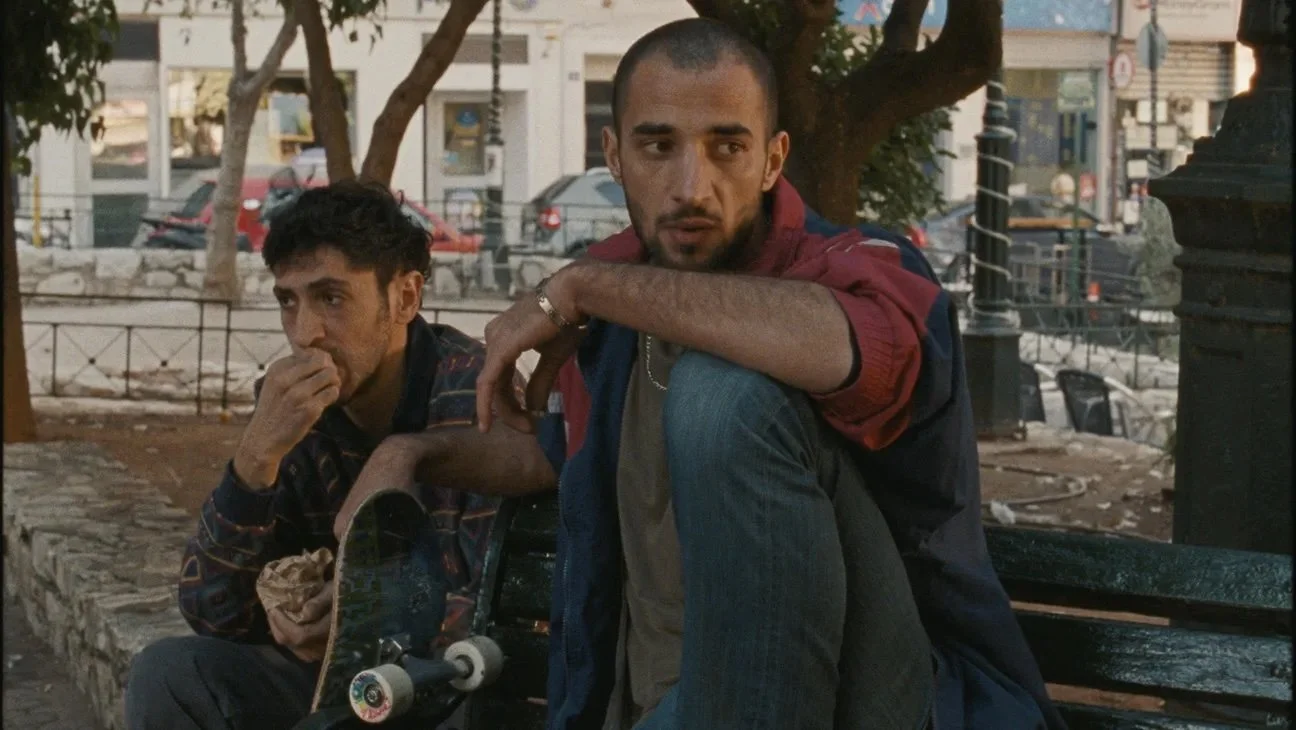Whistler Film Festival reviews: Insanely extreme sports, a pathological skinflint, and an eye-catching indie treat
Human Extreme, Offside: The Harold Ballard Story, and Diaspora among the 2022 fest’s compelling titles
Human Extreme.
Whistler Film Festival runs from November 30 to December 4 in person and from December 5 to January 2 online
Human Extreme (France/Canada)
December 4 at 6:30 pm and 8:45 pm at Rainbow Theatre
In what most people would describe as insane, French athlete Valentin Delluc is a dedicated speed rider, donning skis and a paraglider to make his way down the world’s sheerest mountain faces, his gear allowing him to ski the deepest, fluffiest powder on the planet—while on the same run, whenever he feels like it, to lift himself skyward to fly, float, flip and spin in the air, and soar over cliffs, even while deadly avalanches roar beneath his feet. It’s one of several stupefying physical activities that trailblazing filmmaker Thierry Donnard captures in Human Extreme.
Speed riding, free diving, big-wave surfing, and back-country snowboarding: if the sports in the film are extreme, so is the filmmaking itself, the French director and his team journeying from the highest peaks in B.C., the French Alps, and Norway to some of Earth’s fastest waves in the Landes region of France to the depths of Mexico’s cenotes, water-filled limestone sinkholes. Shot by daring crew members over two years with aerial, drone, underwater, and other sophisticated camera equipment, the documentary gives a glimpse into the lives of 10 extreme athletes, revealing some of the mind-boggling technical and tactical considerations of their pursuits and, more intriguingly, the motivations behind them.
Delluc decided to dedicate his life to speed riding after his brother died doing the same thing; he wanted to experience for himself what drew his sibling to the high-flying sport and ended up falling in love with it. Immersing himself in nature, he happened to be fishing in B.C. one day when a wild man swooshed past him, river surfing. It turned out to be Rory Bushfield, veteran freeride skier and former member of Canada’s World Cup team. The two bonded over their passion for living on the edge and over enormous loss; Bushfield was married to Canadian freestyle skier Sarah Burke, a pioneer of the superpipe, who died in a skiing crash in 2012. “Bushy” has since committed himself to living his life to the fullest in her honour, which includes ski flying: piloting his own Cessna to treacherous, remote snowscapes to ski down. Masters of the air and the mountains, Bushfield and Delluc both thrive in the outdoors and feel at home when looking down from above.
At the opposite end of nature’s spectrum, Camila Jaber finds peace in exploring the subterranean universes of the Yucatan Peninsula’s cenotes, which are considered sacred spaces in Mayan culture. Diving deep into the darkness without any oxygen, Jaber—a water-resources engineer and underwater stuntwoman who can hold her breath for up to three minutes at a time—connects with a spiritual energy there that she says can’t be found anywhere else on Earth.
All of the athletes in Human Extreme share a grave concern for the places they play and work in: they are witnessing, first-hand, tangible effects of the climate crisis. Donnard, who shot his first ski film at 13, lets much of the action play out in extended scenes set to glorious orchestral, choral, or ambient music, in and out of slow motion. Amid so much splendid scenery, it’s all breathtakingly gorgeous.
Few of us will ever be able to—or care to—experience life on the edge like these athletes do, but through their fearless rituals we can be reminded of humans’ impact on the wild, wondrous, and unpredictable playground we call home. GJ
Yulia Guzhva lost in translation in Diaspora.
Diaspora (Canada)
December 2 at 8:15 pm and December 3 at 12:15 pm at Village 8 Cinemas
When we meet Eva (the arresting Yulia Guzhva), she is trying to pull her giant red suitcase out of the back of a yellow cab, all set against the beige-brick backdrop of a faded historic facade, and the blazing blue Prairie sky beyond. Take that as notice that filmmaker (and former Guy Maddin collaborator) Deco Dawson’s latest experiment, shot with dreamlike flourish by Andrew Forbes, is going to make a strong visual statement with every frame.
The new Ukrainian immigrant comes looking for a better life in Winnipeg’s North End—a neighbourhood in glorious decline, a surreal, near-empty urbanscape of abandoned movie houses, Croatian clubs, Turkish restaurants, thrift shops, and neon-lit roller rinks. Moving along the sidewalks in front of these faded outposts, young Eva looks increasingly lost and alienated—a fact Dawson emphasizes even more by only using subtitles when she speaks in Ukrainian. There are about two-dozen other languages in the film—and she just can’t connect with the city’s other new immigrants, who converse in everything from Finnish and Cantonese to Tagalog and Spanish. Ever lost in translation, Eva finds some of her only comfort in repeated, Kafkaesque visits to a Ukrainian import-export shop that never seems to be open. Dawson adds to the unsettling disconnect with a score that’s a wonky mix of sax and strings—sounding kind of like folk music from another planet.
Yes, Diaspora is long, slow, and deadpan, with extended stretches without dialogue, and it’s hard to know what to call it except “committed”: this eye-catching indie treat falls somewhere between love letter to a disappearing neighourhood, delirious ode to diasporic alienation and yearning, and a darkly comic trip into the absurd. Think Lynch or Jarmusch, if they’d been raised on the Polish delis, Turkish shish kebobs, and Wheelies nights in the ‘Peg’s North End. Every shot is fantastic and feels weirdly alive. And we haven’t even mentioned that it was made well before Russia invaded Ukraine and sent thousands emigrating overseas. The cultural mosaic gone surreally off-kilter, in a film that could only have been made in Canada. JS
Offside: The Harold Ballard Story (Canada)
December 3 at 8:30pm at Rainbow Theatre
You have to admire the commercial instincts behind this doc, directed by Jason Priestley for the CBC, which trades on nostalgia for primo Canadiana as the nation mutates into something unrecognizable. There’s also never a bad time to tell the story of Harold Ballard, an archetypal Lord of Misrule incapable of waging a dull moment.
Priestley’s film is a zippy and good-humoured enterprise that capably moves through the man’s chronology, from carefree wealthy playboy to the man whose curse—32 years after his death—still lingers over Maple Leaf Gardens and the misbegotten team that lives there.
Having explained how Ballard managed to win controlling interest in the Toronto Maple Leafs in 1971, despite being the worst possible candidate, Offside revisits all the greatest hits, including his jail time in ’72 for a string of white-collar offences and the multiple ways he went on to destroy his team through greed, malice, and sheer obstinance. Sun Tzu wrote that “An evil enemy will burn his own nation to the ground to rule over the ashes,” but he left out the bit about trading Lanny McDonald or replacing the Queen’s portrait with more seats because “she doesn’t pay admission”.
A section about Ballard’s full-spectrum bigotry is tedious and predictable. Would the man be cancelled today, muses one young journo? Yes, definitely, and so what? Sportsnet’s Donnovan Bennett hits the nail on the head when he states: “I think in some ways Ballard was smarter than the media.” (Correct.) Cue a variety of clips demonstrating the man’s very calculated acts of outrage, including a hilarious encounter with Barbra Frum and precious moments from his quixotic campaign to ban female reporters from the dressing room. “We got guys in there with cocks as long as your arm!” he thunders. “Yes, I laughed then,” says a repentant Globe & Mail reporter, “But you wouldn’t use that quote now.” Except we both did.
You can’t really say that Offside offers any new information or psychological inquiry beyond “Ballard loved to be hated.” Among others, Darryl Sittler, Lanny McDonald, Jim McKenny, Wendel Clark, and Gary Leeman speak politely through thin lips about their enigmatic tormentor. Tiger Williams declares his love. Presumably welcomed back to the Ceeb, Don Cherry offers a more sober assessment of the man he praised in the ’70s as “my kind of guy”, conceding that Ballard was a pathological skinflint who seemed bent on punishing his best assets for stealing the attention or demanding a decent paycheque.
Where the film succeeds is in capturing Ballard as the effortlessly amusing nutcase that he was, like a combination of Gatsby, Howard Hughes, and Charles Foster Kane squeezed through a Hoser filter. Equally, an end card informing us that Leafs are now owned by some sort of multinational conglomeration of cyborgs reminds us that Ballard’s era of Carny Capitalism sure beats the hell out of the corporate version we’re saddled with now. AM
















